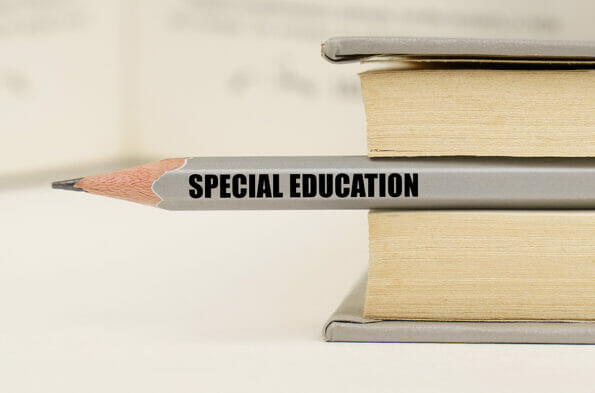Are you considering a career in special education? If so, you are in for a rewarding career.
As a special education teacher, you will have the opportunity to make a difference in the lives of students with unique learning needs. But what skills do you need to succeed in this role? Read on to find out:
- Communication Skills
Students with special needs do not use traditional ways to express themselves. As a special education teacher, you must be able to listen attentively and understand what your students are trying to tell you.
Special education teachers are also part of a larger team that includes administrators, counselors, and other educators. Again, you must be on top of your communication skills to work with this team. It will ensure that everyone is on the same page.
If you are not born with superior interpersonal skills, you may take the following measures to hone them:
- Practice active listening: It entails paying attention to what the other person is saying rather than just holding out until it is your turn to speak. Use nonverbal cues like nodding your head and maintaining eye contact to show that you are truly focused.
- Use simple language: If you have enrolled in one of the online education degree programs to become a teacher, you may have picked up several technical terms about your field. While it is tempting to use jargon to demonstrate your knowledge, doing so may make your message unclear to the intended audience. Thus, you are better off sticking to simple language.
- Adaptability
Students with special needs have unique learning requirements. So what works for one student may not work for another. That is why adaptability is a key skill for special education teachers.
For example, if you are working with a visual impairment student, you may need to adapt your lesson plans to include more visual aids or use braille materials. Moreover, the needs of your students can also change over time. You must embrace these changes and find new ways to engage the class.
Nowadays, different types of assistive technologies are hitting the scene frequently. They help students with special needs access educational materials and classroom participation.
By staying up-to-date on the latest assistive technology, you can find the right tools and resources to support your students and adapt your teaching style to make the most of these resources.
- Time Management Skills
Special education teachers encounter a lot of interruptions throughout the day, such as students who need extra attention or support or unexpected changes to the schedule. Good time management skills will enable you to anticipate and plan for these interruptions.
While time management is undoubtedly crucial for the practical aspects of teaching, it also allows teachers to have more fun in the classroom. By being organized and efficient, you can create a positive, enjoyable learning environment for students, have more time for fun, and be creative in your teaching.
Improving time management skills is an ongoing process, and there are many strategies that special education teachers can use to become more organized and efficient. Here are a few ideas to get you started:
- Make a to-do list: A to-do list helps you keep track of tasks and prioritize them. Consider breaking your list into smaller, more manageable chunks and crossing items off as you complete them. That way, you will feel a sense of accomplishment and stay motivated.
- Set goals: Goal-setting is an effective instrument for educators working with students with special needs. Start by setting short-term goals for the day or week, and then work to longer-term goals for the month or year. Make sure your goals are specific, measurable, achievable, relevant, and time-bound (SMART).
- Learn to say no: It is okay to say no to requests or tasks that are not a priority or take away your time from students. Be firm and clear when saying no so that people do not insist on convincing you.
- Use a planner: A planner is useful for keeping track of appointments, deadlines, and other important dates. Consider using a planner that includes space for daily or weekly tasks and longer-term planning.
- Patience
Students with learning disabilities may need more time to process information and complete tasks. Instead of getting frustrated or giving up on their students, patience will enable teachers to ensure students fully grasp concepts and overcome obstacles.
Let’s say a student gets easily agitated or has difficulty following rules. In that case, a patient teacher might try using positive reinforcement, setting clear expectations, and offering consistent routines to help the student feel more secure and capable.
Also, patience helps special education teachers protect their health and avoid exhaustion. Sometimes working with special education students can be extremely tough. With patience, you will be able to handle these challenges with grace and not let them get the better of you.
One way to enhance your patience level is to practice mindfulness. Set aside a few minutes each day to focus on the present moment. You may also leverage apps and online resources that offer guided mindfulness meditation sessions.

- Empathy
With empathy, special education teachers can put themselves in their students’ shoes. In other words, they can try to understand what it is like to experience things from their perspective.
If a student is having a hard time with a particular concept or task, an empathetic teacher might try to understand what might be causing the difficulty. Maybe the student is frustrated because they do not understand the material, or perhaps they are feeling overwhelmed because they have a lot of other things going on in their life.
By taking the time to understand their emotions and needs, the teacher can better support the student and help them find ways to overcome their challenges.
Conclusion
As a special education teacher, you can make a real impact on the lives of your students.
Whether you are just starting or have been in the field for many years, you must approach your work with a positive attitude and dedication to helping your students succeed.
By doing so, you can make a meaningful difference in the lives of your students and help them reach their full potential.
Image Source: BigStockPhoto.com (Licensed)
Related Categories: Education, Reviews








